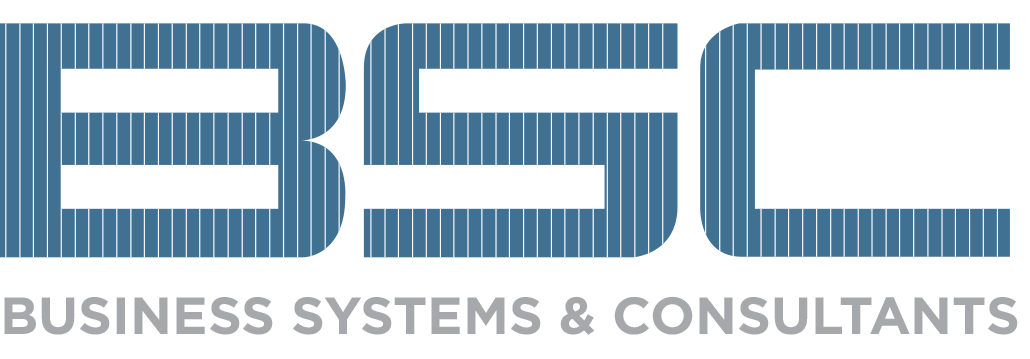Electronic Medical Records (EMR) : Why They Benefit Health Care Practices
Have you ever wondered what patients are thinking when they have to wait hours upon hours in the waiting room or even the back rooms after being weighed by a nurse? Most patients dread the wait at a doctor’s office because it typically takes up a full day. Some of these delays may be caused by the slow process of paper filing and paper scanning when adding to or creating a new file for a patient. This time spent on waiting and the time spent on employees writing record information can be significantly decreased by using Electronic Medical Records or EMR. Electronic medical records have proven to decrease the amount of time employees must spend on updating records as well as eliminating that wait time everyone dreads when going to the doctor. Let’s take a look at some advantages of EMR and why you should implement this in your practice.
EMR in Alabama, Mississippi and Tennessee
Business Systems and Consultants, located in Birmingham, Alabama, have worked with several healthcare facilities to help eliminate the time spent on recording patient records in paper files and have successfully seen an increase in productivity when converting to electronic medical records (EMR) or paperless records.
Digitizing records can help healthcare facilities in Alabama, Mississippi, and Tennessee strengthen the security and decrease the amount of time patients have to wait for records to be imported in the healthcare’s system. Imagine if you could see up to 10 more patients in a day just by going paperless. That’s a whole lot more business for your individual practice.
The Difference Between EMR and EHR
Some of you in the healthcare field may be wondering…well what’s the difference between electronic medical records (EMR) and electronic health records (EHR)? Is one more important than the other? Electronic medical records or EMR are digital versions of the paper charts in clinician offices, clinics, and hospitals. EMRs contain notes and information collected by and for the clinicians in that office, clinic, or hospital and are mostly used by providers for diagnosis and treatment.
This is one reason why wait times can be increased for patients who go to a doctors office that have not gone paperless. Any information received from a patient must go in their record for patient safety. This makes electronic medical records (EMR) more valuable than paper records because they enable providers to track data over time, identify patients for preventive visits and screenings, monitoring patients, and improving health care quality. Electronic health Records or EHR are built to go beyond standard clinical data collected in a healthcare office and are inclusive of a broader view of a patient’s care.
Electronic health records (EHR) contain information from all the clinicians involved in a patient’s care and all authorized clinicians involved in a patient’s care can access the information to provide care to that patient. This is helpful when patients visit old health care offices that they may not have gone to in a while and their EHR can be viewed and monitored by those clinicians that have supported or cared for that patient in the past.
EHRs are also used between clinicians who may be running labs or gathering treatments for that patient. Although electronic health records and electronic medical records are different they are still important to your health care practices and are used constantly for your patients’ care.
Advantages of Electronic Medical Records
Let’s jump into some of the advantages of EMR or electronic medical records.
- EHR provides accurate, up-to-date, and complete information about patients at the point of care.
- EHR enables quick access to patient records for more coordinated, efficient care.
- EHR secures the sharing process between patients and other clinicians.
- Electronic medical records help providers more effectively and deliberately diagnose patients, reduce medical errors, and provide safer care.
- Improves patient and their providers interaction and communication.
- EHR enables safer, more reliable prescribing of medication.
- Gives patients more legible and accurate billing information.
- EHR enhances privacy and security of patient data.
- Last but certainly not least, EHR reduces the costs of original paperwork by decreasing the amount of physical paper you use in the office.
Benefits Your Practice Could See When Implementing EMR in Your Facilities
How do you and your patients benefit from (EMR) electronic medical records?
Errors are reduced and health care is improved with fast access to accurate and updated records. As stated above, records are more clear and complete. The amount of accurate diagnoses would be increased when information is implemented correctly in the system.
Happy Patients Means More Business
Health care practices all across the southeast including: Alabama, Mississippi, and Tennessee can benefit from reducing paper in the work place and choosing to digitize records and use electronic medical records (EMR). By implementing this into your practice, you can have happy patients and see an increase in productivity by your employees. Lose the hassle of writing on paper and hoping you don’t lose important patient records and contact BSC today to talk in detail about digitizing your records and going paperless.
